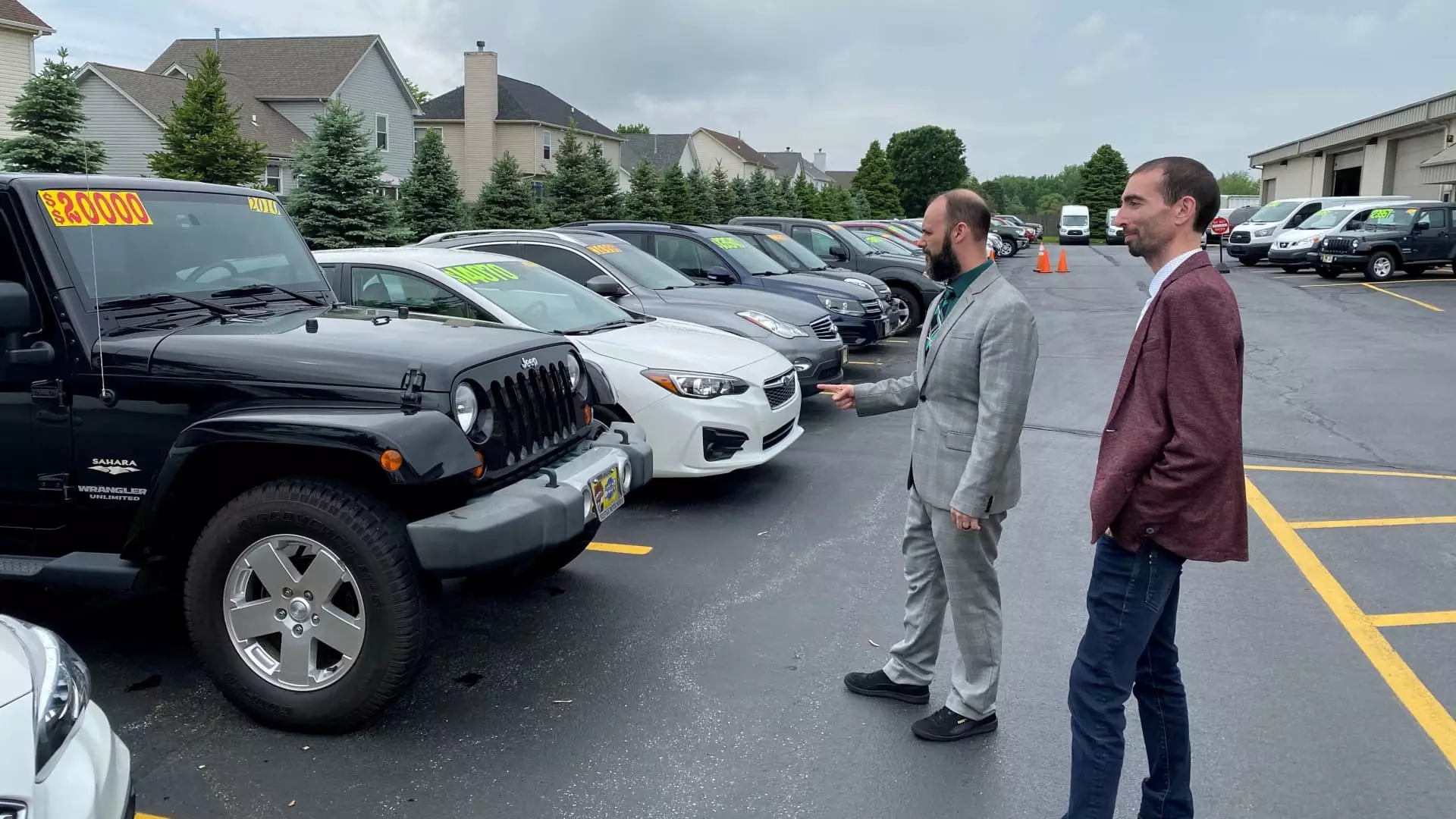As the automotive landscape shifts in anticipation of 2025, U.S. car dealers are experiencing a wave of renewed optimism. The factors contributing to this upbeat sentiment are multifaceted, ranging from the outcomes of the recent presidential election to favorable economic indicators, such as declining interest rates and an array of sales incentives provided by automakers. A report from Cox Automotive shines a light on these developments, showcasing a significant shift in dealer perspectives following the election of President-elect Donald Trump. However, the same report reveals a troubling trend concerning the sale of electric vehicles (EVs), underscoring a complicated narrative for the industry.
Despite an overall surge in confidence among dealers, the sentiment surrounding electric vehicle sales remains bleak. The “Q4 2024 Dealer Sentiment Index” from Cox indicates a clear downturn in expectations for EV sales in the near term. While previous quarters may have inspired hope, a majority of surveyed dealers predict a decline in sales, raising alarms about the viability of electric vehicle sales under potential policy changes from the Trump administration. This could lead to reduced federal support for EVs, including the possible reduction or elimination of consumer tax credits that currently incentivize EV purchases.
Jonathan Smoke, the Chief Economist at Cox, emphasizes the importance of these tax incentives, stating their relevance to both new and used EV markets. The concern is that any erosion of these incentives could quickly reverse the delicate gains seen in EV sales. This presents a stark contrast to the broader optimism in other areas of the automotive market, creating a dichotomy that dealers must navigate in the coming months.
In terms of overall market sentiment, Cox Automotive’s indicators show promising signs. The market outlook index jumped from 42 in the previous quarter to 54, painting a picture of increased confidence among dealers regarding the auto retail market’s health. An index score above 50 reflects a more favorable perspective, suggesting that dealers believe market conditions will improve. Just a year prior, the outlook was markedly less optimistic, with the index hitting a low of 41 amid widespread uncertainty brought on by the pandemic and fluctuating economic conditions.
However, despite this upward trend, a score of 42 still indicates that many dealers are feeling the pressures of a weak retail auto market, a fact that should not be overlooked. The optimism is welcome, yet it is tempered by the reality that economic indicators and consumer behavior continue to present challenges.
Political dynamics play a crucial role in shaping dealer perceptions, as seen in the survey results. After the election, the proportion of dealers who indicated that the political climate impacts their business dropped notably from 44% to 35%. This significant decline suggests that the resolution of political uncertainty has injected a measure of stability into the industry, allowing dealers to look forward with a bit more confidence.
Furthermore, potential government measures, like tax rebates and lowered interest rates, may enhance this positivity. As dealers prepare for 2025, these factors may contribute to a more robust automotive market—albeit one that remains uncertain when it comes to the electric vehicle segment.
Stock Market Performance: A Bright Spot
In a positive turn of events for the automotive sector, stocks of publicly traded auto dealers have performed impressively throughout the year, fueled by high pricing in both new and used vehicle markets. Companies such as AutoNation, Lithia Motors, and Sonic Automotive have seen stock prices increase by varying degrees of 15% to 22%, while Group 1 Automotive has stood out with a striking rise of approximately 40% in 2024.
This robust stock performance is indicative of dealer confidence in their market strategies and the overall health of the automotive sector in the face of economic uncertainties. However, the looming concerns surrounding electric vehicle sales and potential policy shifts could temper this optimism, requiring dealers to strategically adapt to the evolving landscape.
As the automotive industry looks toward 2025, U.S. car dealers are caught in a delicate balancing act of optimism and caution. While the recovery of market sentiment and a favorable political backdrop suggest a brighter future for many dealers, the uncertain fate of electric vehicle sales remains a significant concern. How dealers respond to these fluctuations will ultimately determine their success in navigating what promises to be a transformative year for the automotive market.


Leave a Reply